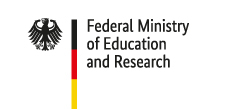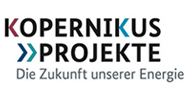Ariadne
Guiding the way to a successful Energy Transition
The Paris Climate Agreement objectives can only be met if policymakers take action. Ariadne explores which policy instruments are most suitable. What impacts most and how, where is a need for action? This Kopernikus project investigates such questions in collaboration with players from politics, the energy transition and society. Research into acceptance and participation are also Ariadne tasks. The project continuously compiles findings and results on its multimedia website.

Germany's Climate Protection Targets are ambitious. As things stand today, previous political efforts are not yet sufficient to achieve them. The Kopernikus project Ariadne (full name: Ariadne - Evidence-based Assessment for the Design of the German Energy Transition) identifies options to improve this. The project focuses on a joint learning process between science and stakeholders in politics, business and society. In dialogue with various stakeholders from politics, business and organised civil society as well as citizens, the project aims to explore and discuss options for shaping the Energy Transition in Germany. The "red thread through the Energy Transition" - the Ariadne slogan - thus runs from publications to peer-reviewed articles, interactive applications and diverse dialogue formats. All this contributes to providing decision-makers with important orientational knowledge.
In dialogue: Exploring options and providing new knowledge
The foundation of all work is first an inventory of the status quo. Which political measures already exist with reference to the energy transition? Are they sufficient to achieve the climate targets? How is Germany doing in the context of the European Union? How do climate protection paths and instruments affect distributional issues? What other measures are conceivable in addition to the existing ones? What are the legal obstacles? And how would political institutions have to position themselves for the implementation of new measures in the future? From CO2 charges to bans and grants - Ariadne analyses possibilities and finds answers.
Thereby, Ariadne approaches the Energy Transition from a systemic point of view: Although the project decisively draws on knowledge about the sectors of transport, buildings, industry and electricity in its research and also develops sector-specific approaches to solutions, the objective is to create an overarching picture of the Energy Transition. This encompasses technologies and instruments as well as regulatory and societal framework conditions.
From the very beginning, political decision-makers, citizens and stakeholders are involved in this process by means of a joint learning process. In dialogue forums with politicians and stakeholders of the Energy Transition as well as citizen dialogues, the project discusses the elaborated options for shaping the Energy Transition. Ariadne evaluates, for example, how the public perceives political measures and what obstacles may exist.
How Ariadne is constantly updating itself
Ariadne regularly integrates new social tendencies into its ongoing research using systematic dialogues. Furthermore, the project continuously assesses: What are the goals set by the federal government and what instruments are used to achieve them? Where are there still gaps? Where does Germany stand on its path to climate neutrality, and which scenarios and paths will lead to success?
As part of the Kopernikus projects, ENSURE, P2X, SynErgie and Ariadne will also discuss technical possibilities, possible scenarios for the Energy Transition and necessary regulatory changes on the route to climate neutrality in a structured exchange.
- Citizen participation: The Energy Transition can only succeed if society supports it. Ariadne invited citizens to play an active role in shaping it. For this purpose, the researchers first discussed with randomly selected people of all ages and social backgrounds in a multi-stage process and developed visions for the energy and transport transition jointly with them in dialogue. The results were presented at the final citizens' summit.
- Transformation Tracker: Where is the Energy Transition now, are the approaches already leading in the right direction, where is readjustment and/or acceleration necessary? These and many other questions are answered by a special tool developed by Ariadne. The Transformation Tracker visualises the status quo of the energy transition based on various scenarios. It literally shows where action is needed now.
- Scenario Report: Speaking of scenarios - Ariadne has also achieved great things here. With the report, the project shows in greater detail than ever before which technologies Germany can use to achieve its goal of climate neutrality. For this, the researchers compared and combined several comprehensive models and scenarios.
- Heat and Living Panel: Ariadne delivers the first reliable figures for the building sector. How? By conducting an annually repeated panel - planned to run until 2026 - of more than 15,000 households. The project will survey more than 15,000 households in a representative ratio in a panel that will be repeated annually and is planned to run until 2026. This enables measures for the heating transition to be planned.
- Looking to Europe: National energy policy will increasingly be moulded by Europe. Ariadne intends to take this into account by more consistently placing national policy options in the European context. In addition, the researchers are also taking a closer look at options that arise from EU policy itself.
- Long-term development paths: With a view to developing a perspective that is oriented towards the present but extends further into the future, Ariadne is researching corresponding transformation paths. Effects, risks and opportunities want to be considered in equal measure. A continuous retrospective analysis of how which measures and instruments have worked allows for implications for the future in a learning process. This allows the transition from a reactive to a formative influence.
- Cross-Kopernikus cooperation: In addition to existing cross-cutting working groups, Ariadne is striving for deeper cooperation on specific technical and systemic issues. In this way, even more current research will flow into the considerations.

